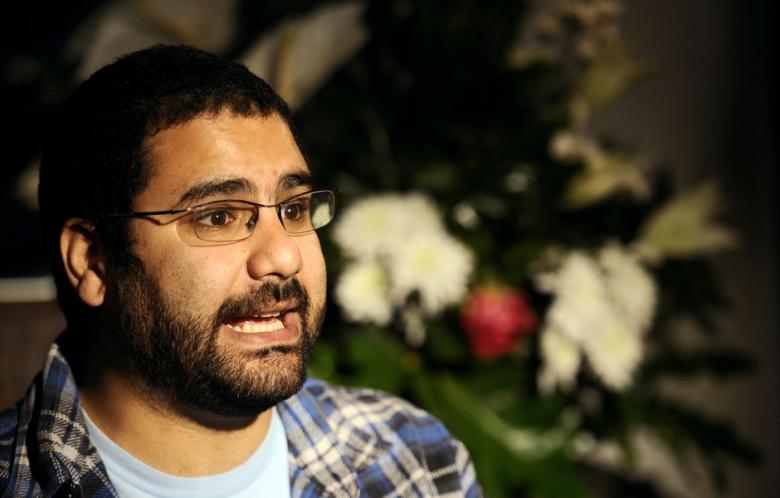Former president Mohamed Morsi and 24 other defendants, including some of his supporters as well as political opponents, stood before court, Monday, in a case in which they are accused of “insulting the judiciary” in media channels.
The Cairo Criminal Court will hold their next hearing on 1 October. The court also lifted a travel ban on seven of the defendants, including renowned activist Alaa Abdel Fattah, the only one of the group who is currently serving a five-year jail term.
The case includes prominent politicians and media personalities, including: Abdel Fattah; journalist Abdel Halim Kandil; owner of Al-Faraeen TV channel Tawfik Okasha; Socialist Popular Alliance Party lawyer Amir Salem; as well as politicians and former MPs Amr Hamzawy, Mostafa Al-Naggar and Hamdy El-Fakharany.
It also includes Muslim Brotherhood figures, such as Essam Sultan, Assem Abdel Maged, Wagdy Ghoneim and Mamdouh Ismail. The accused were referred to court in January 2014.
According to state-owned newspaper Al-Ahram, Abdel Fattah, Al-Naggar, Okasha, Salem and Fakharany’s travel ban was cancelled by court.
The defendants face charges of “inciting demonstrations and toppling the state using Twitter accounts, [and] intentionally annoying and disturbing others via misusing communication tools”. They had spoken about the judicial system in different TV shows in 2012 and 2013.
In May, a senior judge filed a report demanding investigations into alleged insults and incitement against the judiciary by Abdel Fattah.
According to the Penal Code, insulting the judiciary is defined under “assault on public officials doing their job”, an offence punishable by imprisonment and a fine. The assault is identified as having taken place through a sign, speech or threat, either directly or by other means of communication.
The felony is punishable by a prison sentence ranging between six months and one year, and a fine of between EGP 200 to EGP 500. In the case of committing the offence through mass media, the penalty is stricter, up to EGP 10,000.


